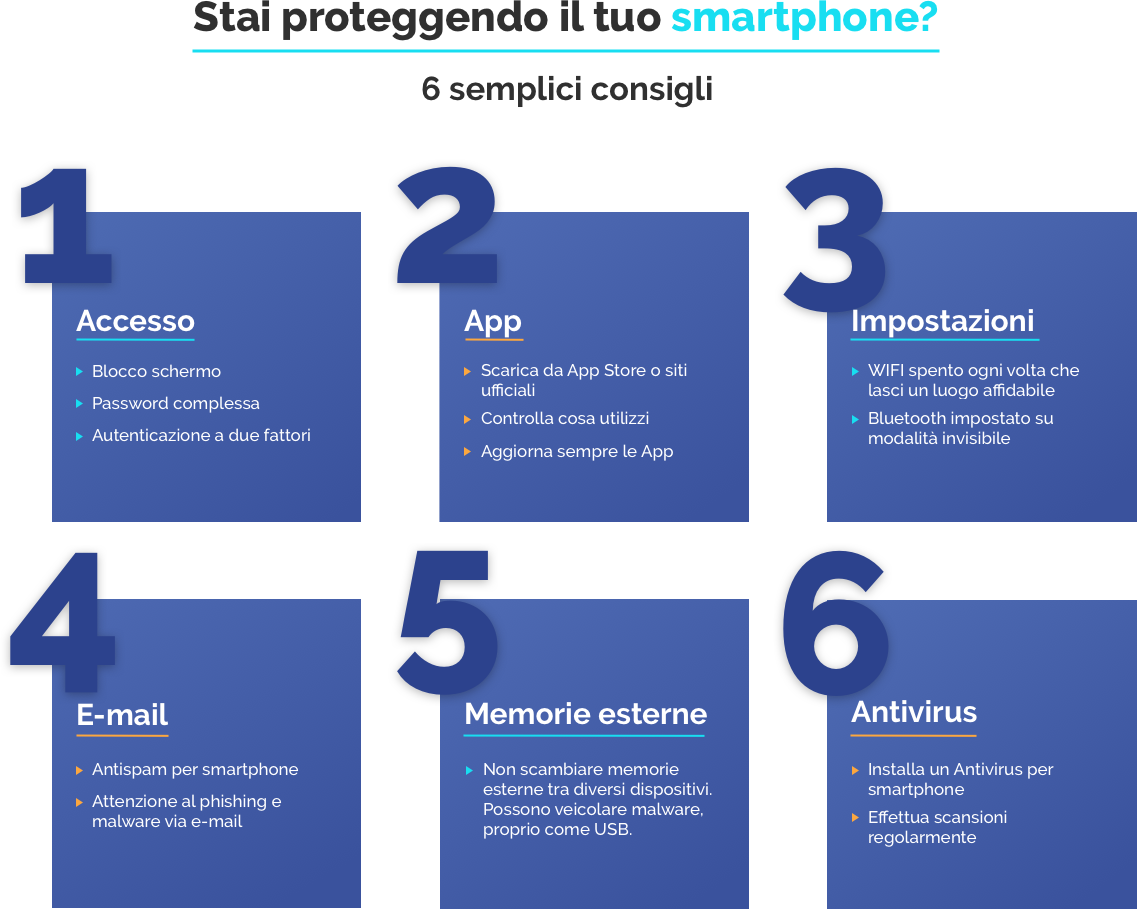It is often underestimated, but the smartphone protection, whether they are Android or iPhone, it is essential, especially in these years in which malware attacks they have increasingly evolved, grown and become sophisticated and intelligent. A lot can be done for better protect your smartphone and above all to protect the data, because in the end it is what we care most about.
1. Login: At the access level, you need to set up a lock to access the smartphone, whether it is a complex numerical code or, better still, a Touch ID or Face ID. To access the App Store or personal data, you need to set a strong password, with upper and lower case letters, numbers and special characters. Where possible, use a method of two-factor authentication, which creates a double barrier of entry and ensures greater difficulty in accessing by third parties.
2. App: first, download apps only from Official app stores or from certified websites, to avoid encountering malware. During the installation of the app, or during the first use, pay attention to the permissions it requests and what you consent to or deny the authorization for. This can be linked to the reading or use of your most personal data. Update apps regularly to make sure you always use the latest version: this not only allows the app to function properly, but also any updates in terms of malware protection.
3. Settings: turn off the WIFI once you leave the office or your home, so you will avoid that open WIFI networks are automatically connected to your device with the possibility of transmission of threats. Bluetooth on the other hand, which in the early 2000s was the main channel of malware between mobile phones, must be set to "invisible" to make our device unidentifiable.
4. Mail: pay attention to the mailboxes you have on your smartphone, because they have exactly the same risks as the mailbox accessible from your laptop or PC. So pay attention to spam, phishing, drive-by emails.
5. Disk: as for USB memories, also the memories to extend the internal capacity of the mobile phone can carry malware. Do not exchange memories with other mobile phones, but dedicate a memory exclusively to the same mobile phone.
6. Antivirus: they don't exist just for computers; the antivirus on smartphone they are effective software for protection against malware. They act, just like on the computer, when used with regular scans, both short and deep. Often they also integrate antispam systems for smartphones, great for staving off email threats.
